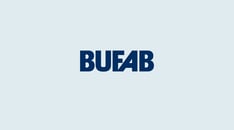Bufab Initiatives and Commitments
Bufab has proactively embraced the initiatives, commitments, and regulations below to drive sustainable customer value. Together, they contribute to a better tomorrow for all parties. Join us in creating a more sustainable future while securing long-term success and competitive advantage for your business.
Bufab is committed to the UN's Sustainable Development Goals (SDGs), focusing on the eight highlighted areas where we can make the biggest impact. We’ve taken concrete steps, such as transitioning to 100% fossil-free energy for our operations and investing in sustainable solar power energy.
In 2021, we enhanced our sustainability efforts by adopting GRI reporting, allowing us to track our progress more effectively. By 2023, we've aligned with CSRD, improving our value chain and furthering our commitment to sustainability.
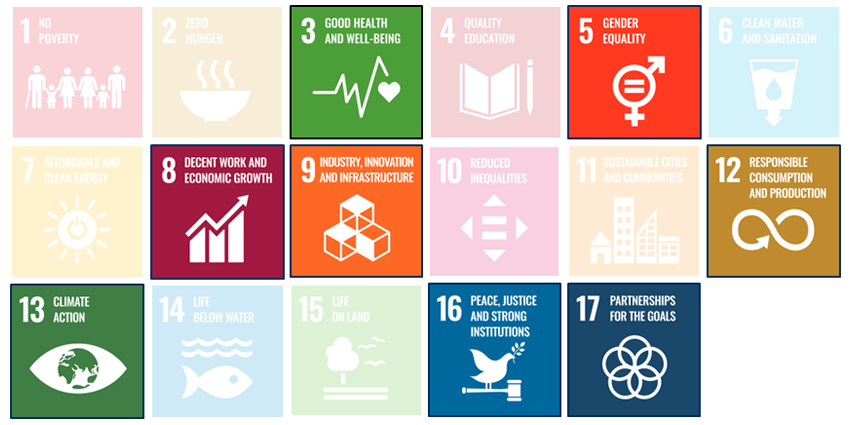
Bufab is committed to the UN's Sustainable Development Goals (SDGs), focusing on the eight highlighted areas where we can make the biggest impact. We’ve taken concrete steps, such as transitioning to 100% fossil-free energy for our operations and investing in sustainable solar power energy.
In 2021, we enhanced our sustainability efforts by adopting GRI reporting, allowing us to track our progress more effectively. By 2023, we've aligned with CSRD, improving our value chain and furthering our commitment to sustainability.

Our commitment is to dramatically reduce the amount of carbon dioxide and other greenhouse gases we generate in our entire operations over the next five years and almost eliminate them in the next ten years.
In the near term, it means making sure that we buy 100% clean energy for our offices and manufacturing, but also investing in our sustainable energy generation—for instance, with solar panel parks in our centers of excellence.
Longer-term, the challenge is much more significant. Reducing CO2 emissions almost entirely will require big changes.
Read more on the UN Global Compact official site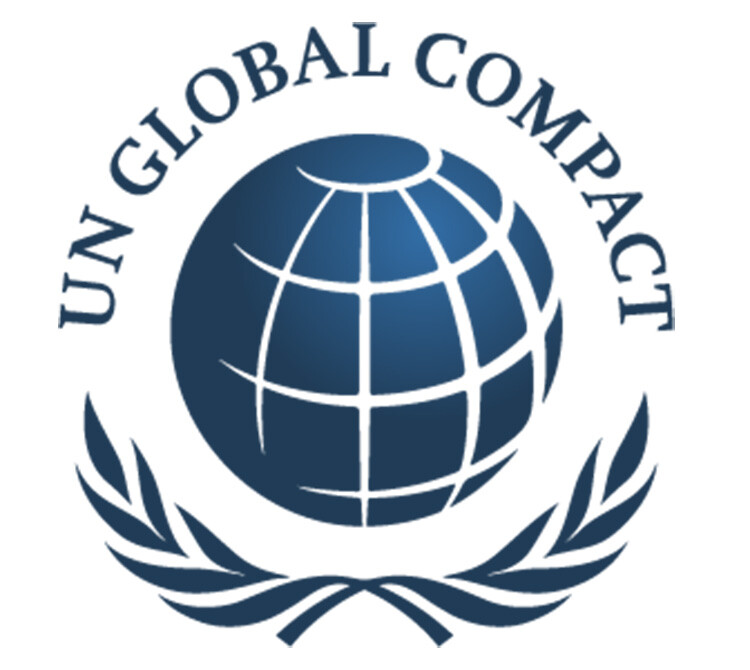
Our commitment is to dramatically reduce the amount of carbon dioxide and other greenhouse gases we generate in our entire operations over the next five years and almost eliminate them in the next ten years.
In the near term, it means making sure that we buy 100% clean energy for our offices and manufacturing, but also investing in our sustainable energy generation—for instance, with solar panel parks in our centers of excellence.
Longer-term, the challenge is much more significant. Reducing CO2 emissions almost entirely will require big changes.
Read more on the UN Global Compact official site
Validated by the Science Based Targets Initiative, Bufab aims to eliminate internal greenhouse gas emissions by 2030 and collaborate with suppliers who share this vision. Our Sustainable Supplier Engagement Program (SSEP) is driving a collective effort to cut emissions in our value chain by 55% by 2031.
In the long term, almost entirely reducing carbon dioxide emissions requires significant changes in the entire value chain in collaboration with our partners. In 2022, Bufab started training its partnership suppliers through a Sustainable Supplier Engagement Program (SSEP) to jointly ensure activities and investments to reduce greenhouse gas emissions in the value chain by 55 percent until 2031; this work is continually reinforced and continues.
Read more on the Science Based Targets official site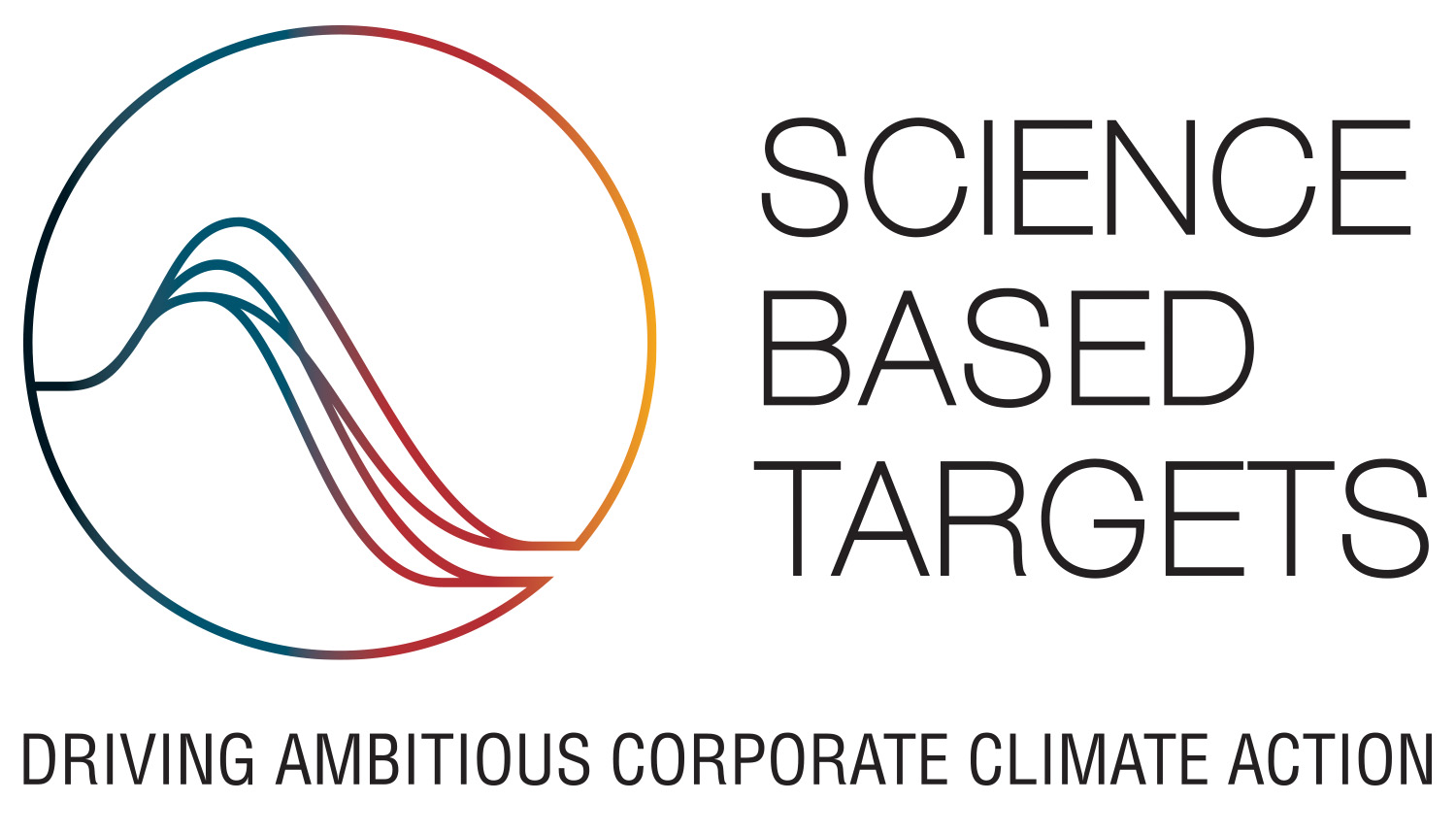
Validated by the Science Based Targets Initiative, Bufab aims to eliminate internal greenhouse gas emissions by 2030 and collaborate with suppliers who share this vision. Our Sustainable Supplier Engagement Program (SSEP) is driving a collective effort to cut emissions in our value chain by 55% by 2031.
In the long term, almost entirely reducing carbon dioxide emissions requires significant changes in the entire value chain in collaboration with our partners. In 2022, Bufab started training its partnership suppliers through a Sustainable Supplier Engagement Program (SSEP) to jointly ensure activities and investments to reduce greenhouse gas emissions in the value chain by 55 percent until 2031; this work is continually reinforced and continues.
Read more on the Science Based Targets official site
Bufab Group has on multiple occasions been awarded a silver medal in recognition of our CSR achievement by EcoVadis.
EcoVadis provides the leading solution for monitoring sustainability in global supply chains.
Their team of international sustainability experts analyzes and crosschecks companies’ data in order to create reliable ratings, taking into account each company’s industry, size, and geographic location.
Join us in our journey to achieve a gold medal.
Read more on the Ecovadis official site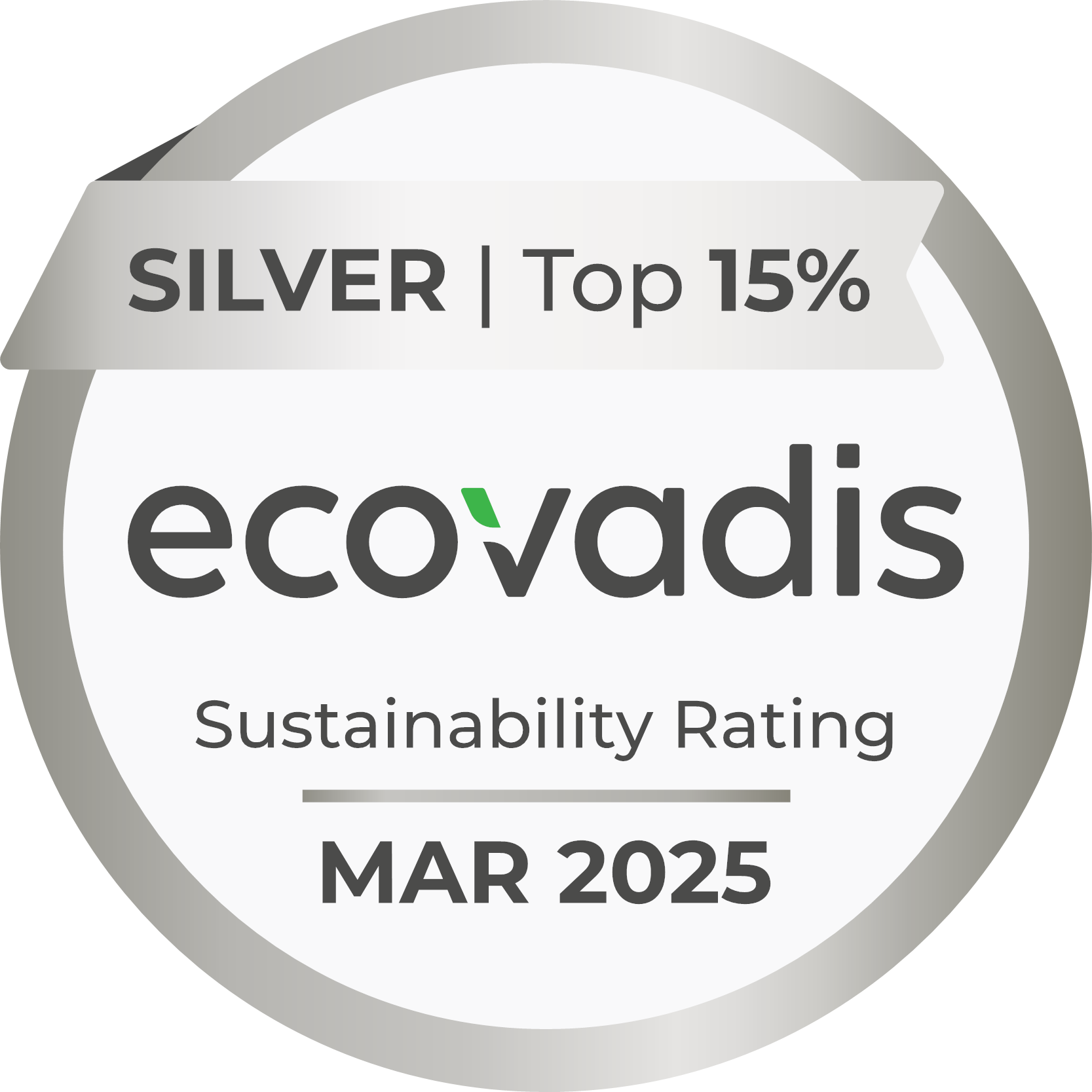
Bufab Group has on multiple occasions been awarded a silver medal in recognition of our CSR achievement by EcoVadis.
EcoVadis provides the leading solution for monitoring sustainability in global supply chains.
Their team of international sustainability experts analyzes and crosschecks companies’ data in order to create reliable ratings, taking into account each company’s industry, size, and geographic location.
Join us in our journey to achieve a gold medal.
Read more on the Ecovadis official site
Picture a future where businesses aren't just profit-driven entities but stewards of a thriving planet and society. The Sustainability Reporting Directive (CSRD) is a game-changer in the corporate landscape, shaping how businesses communicate their environmental, social, and governance (ESG) practices. It's a roadmap for companies to showcase their commitment to making a difference.
Embracing the CSRD isn't just about compliance; it's our strategic move towards a more sustainable and ethically conscious business landscape. In 2023, we worked intensively to implement CSRD in our operations and ensured reporting in line with the legal requirements that will come into force in 2024. Now we look forward to measure our progress!

Picture a future where businesses aren't just profit-driven entities but stewards of a thriving planet and society. The Sustainability Reporting Directive (CSRD) is a game-changer in the corporate landscape, shaping how businesses communicate their environmental, social, and governance (ESG) practices. It's a roadmap for companies to showcase their commitment to making a difference.
Embracing the CSRD isn't just about compliance; it's our strategic move towards a more sustainable and ethically conscious business landscape. In 2023, we worked intensively to implement CSRD in our operations and ensured reporting in line with the legal requirements that will come into force in 2024. Now we look forward to measure our progress!

The Carbon Disclosure Project is a global non-profit organization that operates an environmental disclosure platform aimed at helping companies, cities, and governments measure and manage their environmental impact. It provides a framework for organizations to disclose data on greenhouse gas (GHG) emissions, climate risks, and resource use in a standardized way.
The purpose of CDP is to drive sustainable economic practices by encouraging organizations to disclose their environmental data, which in turn helps investors, policymakers, and other stakeholders make informed decisions to mitigate climate change and protect natural resources
Read more on their official site

The Carbon Disclosure Project is a global non-profit organization that operates an environmental disclosure platform aimed at helping companies, cities, and governments measure and manage their environmental impact. It provides a framework for organizations to disclose data on greenhouse gas (GHG) emissions, climate risks, and resource use in a standardized way.
The purpose of CDP is to drive sustainable economic practices by encouraging organizations to disclose their environmental data, which in turn helps investors, policymakers, and other stakeholders make informed decisions to mitigate climate change and protect natural resources
Read more on their official site

Reducing the effects of climate change requires global solutions. As the EU raises its ambitions with new regulations and tariffs, there's a growing risk of 'carbon leakage'—where companies move carbon-intensive production to countries with fewer climate regulations or replace European products with cheaper, more carbon-intensive imports.
The EU’s Carbon Border Adjustment Mechanism (CBAM) strives to make the carbon price of imports equivalent to EU-produced goods to encourage sustainable production worldwide.
European manufacturers must understand CBAM; lacking information on imported emissions will lead to steep costs. Starting January 2026, importers must purchase CBAM certificates for non-EU imports that align prices with EU-produced goods.
Bufab ensures compliance and peace of mind by monitoring regulations, managing reporting, and engaging suppliers in decarbonization activities. This helps avoid inflated tariffs and reduces carbon-related costs.
Learn more about CBAM and other sustainability factors in our guide to sustainability in the C-parts supply chain. Read the article about how CBAM affects European manufacturers or download the Manufacturer’s Guide to Sustainability. Our supply chain experts are ready to help.
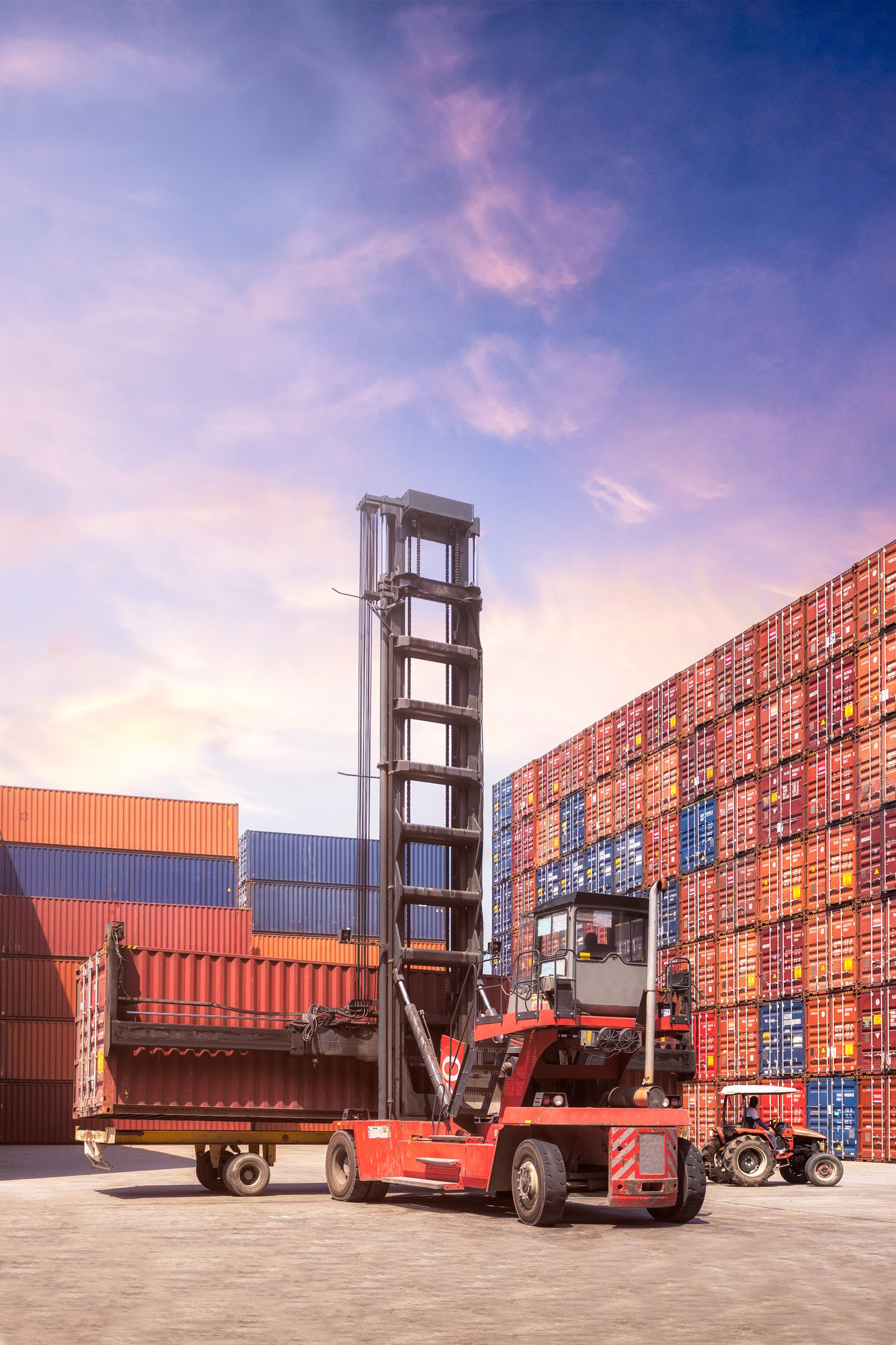
Reducing the effects of climate change requires global solutions. As the EU raises its ambitions with new regulations and tariffs, there's a growing risk of 'carbon leakage'—where companies move carbon-intensive production to countries with fewer climate regulations or replace European products with cheaper, more carbon-intensive imports.
The EU’s Carbon Border Adjustment Mechanism (CBAM) strives to make the carbon price of imports equivalent to EU-produced goods to encourage sustainable production worldwide.
European manufacturers must understand CBAM; lacking information on imported emissions will lead to steep costs. Starting January 2026, importers must purchase CBAM certificates for non-EU imports that align prices with EU-produced goods.
Bufab ensures compliance and peace of mind by monitoring regulations, managing reporting, and engaging suppliers in decarbonization activities. This helps avoid inflated tariffs and reduces carbon-related costs.
Learn more about CBAM and other sustainability factors in our guide to sustainability in the C-parts supply chain. Read the article about how CBAM affects European manufacturers or download the Manufacturer’s Guide to Sustainability. Our supply chain experts are ready to help.

Sustainability isn’t just about the environment. Social sustainability is crucial for boosting your brand and protecting your reputation.
Human Rights Due Diligence (HRDD) is key to achieving social sustainability. It ensures that your business complies with regulations protecting human rights and labour standards. It’s a complex but necessary task for sustainable companies.
Key Regulations
- OECD MNE Guidelines: Non-binding but widely accepted guidelines on human rights, competition, and more.
- UN Guiding Principles: Standards for avoiding human rights breaches, though not legally binding.
- ILO Declaration: Core conventions on workers' rights, including unionization and the abolition of forced labor.
- International Bill of Human Rights: Foundation for the Universal Declaration of Human Rights.
To truly embrace social sustainability, companies need to navigate complex regulations and prioritize human rights. The stakes are high, but the rewards—ethical integrity, brand strength, and long-term success—are worth it.
Bufab’s Commitment
Bufab is dedicated to helping you meet these challenges. We ensure compliance through our Supplier Code of Conduct and regular audits, guiding our partners toward responsible practices that align with global standards. Together, we can build a sustainable, ethical supply chain that strengthens your business and upholds human dignity.
Explore our guide to supply chain sustainability, check if your supply chain is under control by reading this article, and connect with our experts for tailored support.
Read more on the International Labour Organization's official site
Sustainability isn’t just about the environment. Social sustainability is crucial for boosting your brand and protecting your reputation.
Human Rights Due Diligence (HRDD) is key to achieving social sustainability. It ensures that your business complies with regulations protecting human rights and labour standards. It’s a complex but necessary task for sustainable companies.
Key Regulations
- OECD MNE Guidelines: Non-binding but widely accepted guidelines on human rights, competition, and more.
- UN Guiding Principles: Standards for avoiding human rights breaches, though not legally binding.
- ILO Declaration: Core conventions on workers' rights, including unionization and the abolition of forced labor.
- International Bill of Human Rights: Foundation for the Universal Declaration of Human Rights.
To truly embrace social sustainability, companies need to navigate complex regulations and prioritize human rights. The stakes are high, but the rewards—ethical integrity, brand strength, and long-term success—are worth it.
Bufab’s Commitment
Bufab is dedicated to helping you meet these challenges. We ensure compliance through our Supplier Code of Conduct and regular audits, guiding our partners toward responsible practices that align with global standards. Together, we can build a sustainable, ethical supply chain that strengthens your business and upholds human dignity.
Explore our guide to supply chain sustainability, check if your supply chain is under control by reading this article, and connect with our experts for tailored support.
Read more on the International Labour Organization's official site
Using potentially hazardous chemicals is sometimes unavoidable in manufacturing. Regulations like the USA's TCSA and the EU's REACH and RoHS purpose is to ensure people and the environment are protected. Non-compliance can lead to significant fines and harsher punishments.
Key EU Regulations
- REACH: Bufab commits to fulfilling all its duties under the European Union regulation no. 1907/2006 concerning the Registration, Evaluation, Authorization, and Restriction of Chemicals (REACH) regarding the disclosure of substances of very high concern (SVHC). Further, Bufab fulfils the requirement to pass on information to its customers on all substances on the Candidate List, which make up more than 0.1% of the identified products.
- RoHS: Bufab commits to ensuring that its products comply with Directive 2011/65/EU of the European Parliament on restricting the use of certain hazardous substances in electrical and electronic equipment (RoHS Directive).
- Conflict minerals: Bufab warrants that products and components provided to our customers do not directly or indirectly contain conflict minerals, as defined by the OECD and United States Dodd Frank Act, Section 1502. To do so, Bufab requires manufacturing companies to identify and disclose the source of 3TG minerals (tin, tantalum, tungsten, and gold) used in products supplied to Bufab.
Navigating chemical regulations is crucial for sustainable success. Stay informed, work closely with suppliers, and keep your compliance data up to date to avoid risks like fines and product recalls.
Bufab’s Commitment
Bufab ensures full compliance with REACH and RoHS, manages SCIP registrations, and provides comprehensive compliance information, giving you peace of mind and allowing you to focus on sustainable growth. Therefore, suppliers need to ensure that the goods provided to Bufab are in compliance with requirements covered under the scope of all relevant regulations.
For more guidance on chemical compliance and sustainability, contact us and explore our article on Conflict minerals and how to avoid them.

Using potentially hazardous chemicals is sometimes unavoidable in manufacturing. Regulations like the USA's TCSA and the EU's REACH and RoHS purpose is to ensure people and the environment are protected. Non-compliance can lead to significant fines and harsher punishments.
Key EU Regulations
- REACH: Bufab commits to fulfilling all its duties under the European Union regulation no. 1907/2006 concerning the Registration, Evaluation, Authorization, and Restriction of Chemicals (REACH) regarding the disclosure of substances of very high concern (SVHC). Further, Bufab fulfils the requirement to pass on information to its customers on all substances on the Candidate List, which make up more than 0.1% of the identified products.
- RoHS: Bufab commits to ensuring that its products comply with Directive 2011/65/EU of the European Parliament on restricting the use of certain hazardous substances in electrical and electronic equipment (RoHS Directive).
- Conflict minerals: Bufab warrants that products and components provided to our customers do not directly or indirectly contain conflict minerals, as defined by the OECD and United States Dodd Frank Act, Section 1502. To do so, Bufab requires manufacturing companies to identify and disclose the source of 3TG minerals (tin, tantalum, tungsten, and gold) used in products supplied to Bufab.
Navigating chemical regulations is crucial for sustainable success. Stay informed, work closely with suppliers, and keep your compliance data up to date to avoid risks like fines and product recalls.
Bufab’s Commitment
Bufab ensures full compliance with REACH and RoHS, manages SCIP registrations, and provides comprehensive compliance information, giving you peace of mind and allowing you to focus on sustainable growth. Therefore, suppliers need to ensure that the goods provided to Bufab are in compliance with requirements covered under the scope of all relevant regulations.
For more guidance on chemical compliance and sustainability, contact us and explore our article on Conflict minerals and how to avoid them.

Bufab is committed to the UN's Sustainable Development Goals (SDGs), focusing on the eight highlighted areas where we can make the biggest impact. We’ve taken concrete steps, such as transitioning to 100% fossil-free energy for our operations and investing in sustainable solar power energy.
In 2021, we enhanced our sustainability efforts by adopting GRI reporting, allowing us to track our progress more effectively. By 2023, we've aligned with CSRD, improving our value chain and furthering our commitment to sustainability.

Our commitment is to dramatically reduce the amount of carbon dioxide and other greenhouse gases we generate in our entire operations over the next five years and almost eliminate them in the next ten years.
In the near term, it means making sure that we buy 100% clean energy for our offices and manufacturing, but also investing in our sustainable energy generation—for instance, with solar panel parks in our centers of excellence.
Longer-term, the challenge is much more significant. Reducing CO2 emissions almost entirely will require big changes.
Read more on the UN Global Compact official site
Validated by the Science Based Targets Initiative, Bufab aims to eliminate internal greenhouse gas emissions by 2030 and collaborate with suppliers who share this vision. Our Sustainable Supplier Engagement Program (SSEP) is driving a collective effort to cut emissions in our value chain by 55% by 2031.
In the long term, almost entirely reducing carbon dioxide emissions requires significant changes in the entire value chain in collaboration with our partners. In 2022, Bufab started training its partnership suppliers through a Sustainable Supplier Engagement Program (SSEP) to jointly ensure activities and investments to reduce greenhouse gas emissions in the value chain by 55 percent until 2031; this work is continually reinforced and continues.
Read more on the Science Based Targets official site
Bufab Group has on multiple occasions been awarded a silver medal in recognition of our CSR achievement by EcoVadis.
EcoVadis provides the leading solution for monitoring sustainability in global supply chains.
Their team of international sustainability experts analyzes and crosschecks companies’ data in order to create reliable ratings, taking into account each company’s industry, size, and geographic location.
Join us in our journey to achieve a gold medal.
Read more on the Ecovadis official site
Picture a future where businesses aren't just profit-driven entities but stewards of a thriving planet and society. The Sustainability Reporting Directive (CSRD) is a game-changer in the corporate landscape, shaping how businesses communicate their environmental, social, and governance (ESG) practices. It's a roadmap for companies to showcase their commitment to making a difference.
Embracing the CSRD isn't just about compliance; it's our strategic move towards a more sustainable and ethically conscious business landscape. In 2023, we worked intensively to implement CSRD in our operations and ensured reporting in line with the legal requirements that will come into force in 2024. Now we look forward to measure our progress!

The Carbon Disclosure Project is a global non-profit organization that operates an environmental disclosure platform aimed at helping companies, cities, and governments measure and manage their environmental impact. It provides a framework for organizations to disclose data on greenhouse gas (GHG) emissions, climate risks, and resource use in a standardized way.
The purpose of CDP is to drive sustainable economic practices by encouraging organizations to disclose their environmental data, which in turn helps investors, policymakers, and other stakeholders make informed decisions to mitigate climate change and protect natural resources
Read more on their official site

Reducing the effects of climate change requires global solutions. As the EU raises its ambitions with new regulations and tariffs, there's a growing risk of 'carbon leakage'—where companies move carbon-intensive production to countries with fewer climate regulations or replace European products with cheaper, more carbon-intensive imports.
The EU’s Carbon Border Adjustment Mechanism (CBAM) strives to make the carbon price of imports equivalent to EU-produced goods to encourage sustainable production worldwide.
European manufacturers must understand CBAM; lacking information on imported emissions will lead to steep costs. Starting January 2026, importers must purchase CBAM certificates for non-EU imports that align prices with EU-produced goods.
Bufab ensures compliance and peace of mind by monitoring regulations, managing reporting, and engaging suppliers in decarbonization activities. This helps avoid inflated tariffs and reduces carbon-related costs.
Learn more about CBAM and other sustainability factors in our guide to sustainability in the C-parts supply chain. Read the article about how CBAM affects European manufacturers or download the Manufacturer’s Guide to Sustainability. Our supply chain experts are ready to help.

Sustainability isn’t just about the environment. Social sustainability is crucial for boosting your brand and protecting your reputation.
Human Rights Due Diligence (HRDD) is key to achieving social sustainability. It ensures that your business complies with regulations protecting human rights and labour standards. It’s a complex but necessary task for sustainable companies.
Key Regulations
- OECD MNE Guidelines: Non-binding but widely accepted guidelines on human rights, competition, and more.
- UN Guiding Principles: Standards for avoiding human rights breaches, though not legally binding.
- ILO Declaration: Core conventions on workers' rights, including unionization and the abolition of forced labor.
- International Bill of Human Rights: Foundation for the Universal Declaration of Human Rights.
To truly embrace social sustainability, companies need to navigate complex regulations and prioritize human rights. The stakes are high, but the rewards—ethical integrity, brand strength, and long-term success—are worth it.
Bufab’s Commitment
Bufab is dedicated to helping you meet these challenges. We ensure compliance through our Supplier Code of Conduct and regular audits, guiding our partners toward responsible practices that align with global standards. Together, we can build a sustainable, ethical supply chain that strengthens your business and upholds human dignity.
Explore our guide to supply chain sustainability, check if your supply chain is under control by reading this article, and connect with our experts for tailored support.
Read more on the International Labour Organization's official site
Using potentially hazardous chemicals is sometimes unavoidable in manufacturing. Regulations like the USA's TCSA and the EU's REACH and RoHS purpose is to ensure people and the environment are protected. Non-compliance can lead to significant fines and harsher punishments.
Key EU Regulations
- REACH: Bufab commits to fulfilling all its duties under the European Union regulation no. 1907/2006 concerning the Registration, Evaluation, Authorization, and Restriction of Chemicals (REACH) regarding the disclosure of substances of very high concern (SVHC). Further, Bufab fulfils the requirement to pass on information to its customers on all substances on the Candidate List, which make up more than 0.1% of the identified products.
- RoHS: Bufab commits to ensuring that its products comply with Directive 2011/65/EU of the European Parliament on restricting the use of certain hazardous substances in electrical and electronic equipment (RoHS Directive).
- Conflict minerals: Bufab warrants that products and components provided to our customers do not directly or indirectly contain conflict minerals, as defined by the OECD and United States Dodd Frank Act, Section 1502. To do so, Bufab requires manufacturing companies to identify and disclose the source of 3TG minerals (tin, tantalum, tungsten, and gold) used in products supplied to Bufab.
Navigating chemical regulations is crucial for sustainable success. Stay informed, work closely with suppliers, and keep your compliance data up to date to avoid risks like fines and product recalls.
Bufab’s Commitment
Bufab ensures full compliance with REACH and RoHS, manages SCIP registrations, and provides comprehensive compliance information, giving you peace of mind and allowing you to focus on sustainable growth. Therefore, suppliers need to ensure that the goods provided to Bufab are in compliance with requirements covered under the scope of all relevant regulations.
For more guidance on chemical compliance and sustainability, contact us and explore our article on Conflict minerals and how to avoid them.






